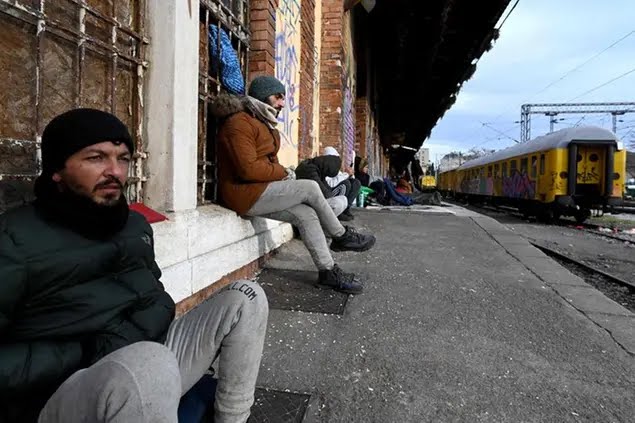International
Illegal immigrants face deportations as EU adopts tougher sanctions

European Commission chief Ursula von der Leyen has revealed, on Friday, that leaders of the European Union have agreed to stricter regulations that would make it simpler to expulse asylum seekers whose petitions for refugee status are rejected.
The actions are a response to growing concern in Europe about increased irregular immigration, which has become a contentious issue in a number of member countries.
At the conclusion of a 16-hour conference discussing this issue and others, EU leaders stated in a final agreement that it is “a European challenge that deserves a European response.”
The European Union’s main concern is the small number of failed asylum seekers who are sent back to their home nations.
The bloc is already hosting millions of refugees from conflicts in Ukraine, Syria and Afghanistan, while facing asylum claims from citizens of safer countries such as Bangladesh, Turkey and Tunisia, many of whom end up being deemed economic migrants ineligible for asylum.
Von der Leyen said “pilot projects” relying on the EU’s border patrol, asylum and police cooperation agencies would look to instil “fast and fair asylum procedures” at the bloc’s external borders.
The EU leaders called on the commission “to immediately mobilise substantial EU funds” to reinforce that external border with “protection capabilities and infrastructure, means of surveillance, including aerial surveillance, and equipment,” according to the summit document.
READ ALSO:EU to deploy 100 observers for Nigeria’s elections
After several EU members, most notably Austria, pressured the commission to foot the bill for reinforced walls meant to deter irregular migrants from passing through from neighboring non-EU countries like Turkey, that decision was made.
Von von Leyen has frequently stated that fences cannot be financed by EU funding.
However, EU officials and diplomats argued that if Brussels paid for the infrastructure, such as cameras, watchtowers, and other elements along the external border, it would free up member states to use their own resources to fund barriers.
The summit also agreed on a “principle” that allows one EU country to use a court ruling in another EU member state to send an undocumented immigrant back to their country of origin.
That would try to prevent “asylum shopping” whereby migrants go to a different country to apply to stay after being turned down in an initial one.
The EU leaders also agreed “to increase the use of the safe-country concepts” that will open the way to the bloc formulating a common list, von der Leyen said.
Join the conversation
Support Ripples Nigeria, hold up solutions journalism
Balanced, fearless journalism driven by data comes at huge financial costs.
As a media platform, we hold leadership accountable and will not trade the right to press freedom and free speech for a piece of cake.
If you like what we do, and are ready to uphold solutions journalism, kindly donate to the Ripples Nigeria cause.
Your support would help to ensure that citizens and institutions continue to have free access to credible and reliable information for societal development.






















